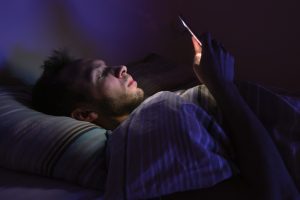Do not suffer from INSOMNIA: Restless sleep
It is common for most people to suffer from a restless sleep. In present days, about 50-70 million people in the US only suffer from sleep disorders. Amongst the most popular ones is insomnia. This disorder makes it hard for people to fall asleep. It can also make it difficult for people to stay asleep or wake up too early and not fall back asleep. 30% of adults reported short-term issues with this disorder, while 10% reported suffering from chronic insomnia.
This disorder can be incredibly draining in various aspects of a person’s life. Most adults need 7-8 hours of sleep a night. With insomnia, one can wake up the next morning and still feel tired and drained. Aside from this, other symptoms include:
- Daytime tiredness
- Anxieties about sleep
- Irritability or Depression
- Trouble focusing on mundane tasks
What causes insomnia?

Insomnia
Insomnia on its own could be a primary problem, or it could also be associated with underlying factors. Chronic insomnia may be a cause of other factors such as:
- Work Schedule: Many people’s daily work schedules throw off their sleep schedule. Late, overnight, or early morning shifts can be harmful to sleep patterns. This continuous action will throw off the body’s internal clock, also known as circadian rhythms. These rhythms are responsible for tracking a person’s body temperature as they sleep, sleep-wake cycle, and metabolism. Disrupting this cycle can cause insomnia and, in turn, create a vicious cycle of attempting to catch up on sleep.
- Eating before bed: Eating a large amount of food before bed can cause a person to feel discomfort while lying down. Many people also suffer from heartburn, which can keep them awake.
- Stress: Worries about everyday activities such as work, school, family, and relationships can keep their mind awake during nighttime.
- Sleep-disrupting substances: Caffeine, nicotine, and alcohol are stimulants. Drinking them too late during the day can have a long-term effect and prevent a person from falling asleep at night. Alcohol may help a person fall asleep; however, it prevents them from entering a more profound sleep stage.
- Changes in Activity: A lack of social interactions or less physical activity can impact a person’s sleep patterns. Also, the less physically active a person is, the more likely they are to nap during the day.
- Changes in Health: As a person ages, conditions such as arthritis and back problems can cause trouble sleeping.
Other factors include medications, medical conditions, mental health disorders, among others. A person should speak to their doctor if their lack of sleep prevents them from completing simple everyday activities.
Insomnia Prevention
A healthy diet along with good sleeping habits can help prevent people from experiencing insomnia. Some other suggestions include:
- Avoid substances such as coffee and alcohol, which disrupt sleep.
- Avoid large meals before bed.
- Bathing before bedtime.
- Regular exercise helps boost a well-rested sleep.
- Keeping consistent be time.
- Lavender oil: Using lavender can help promote sleep and boost mood. Lavender can be taken orally or used as an essential oil.
- Avoid screens 1-2 hours before bedtime.



